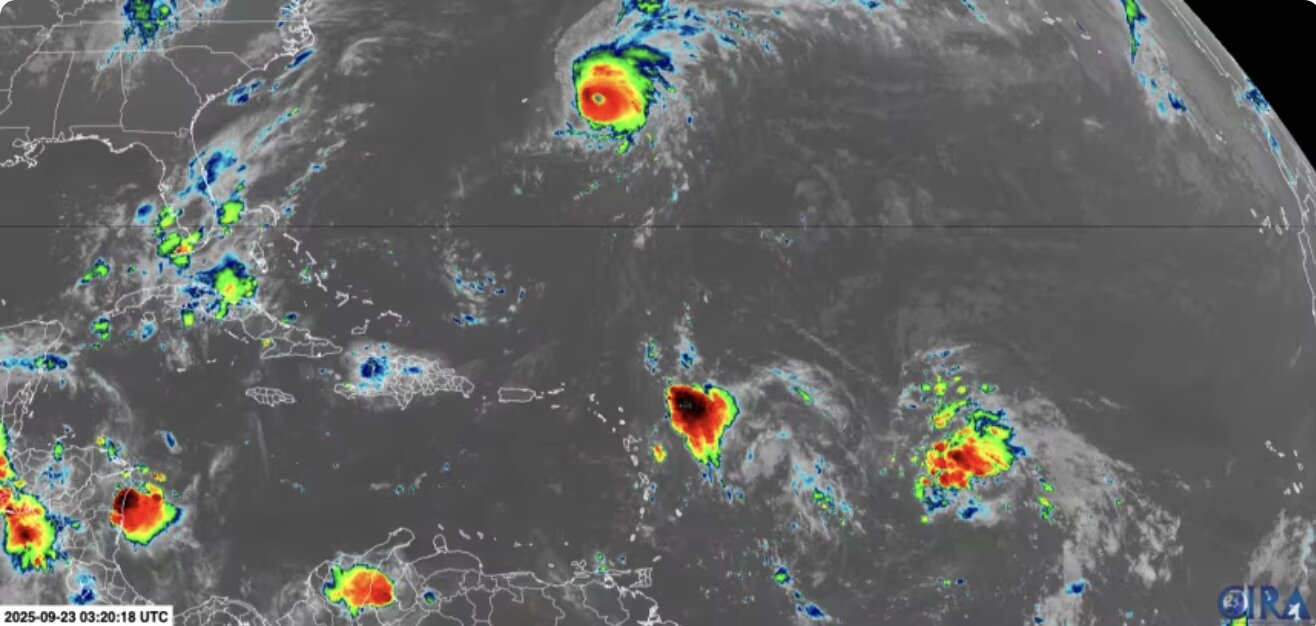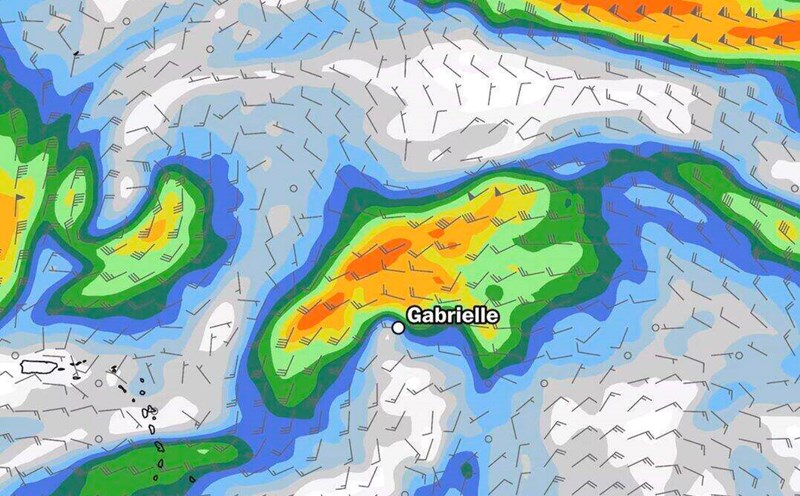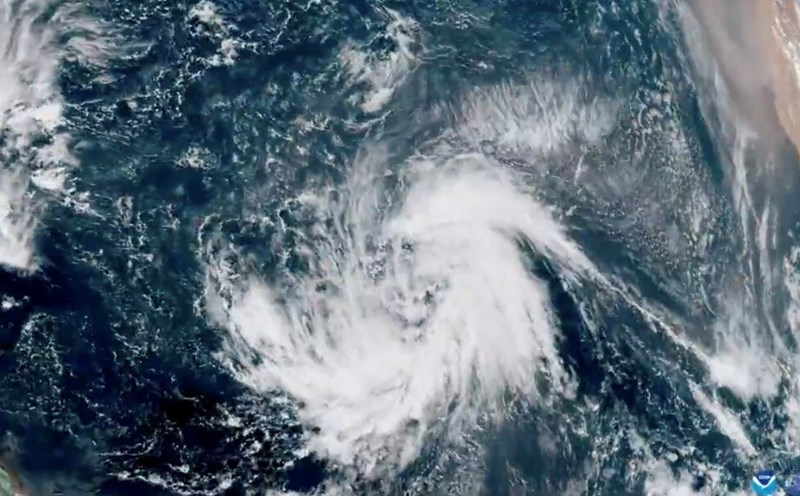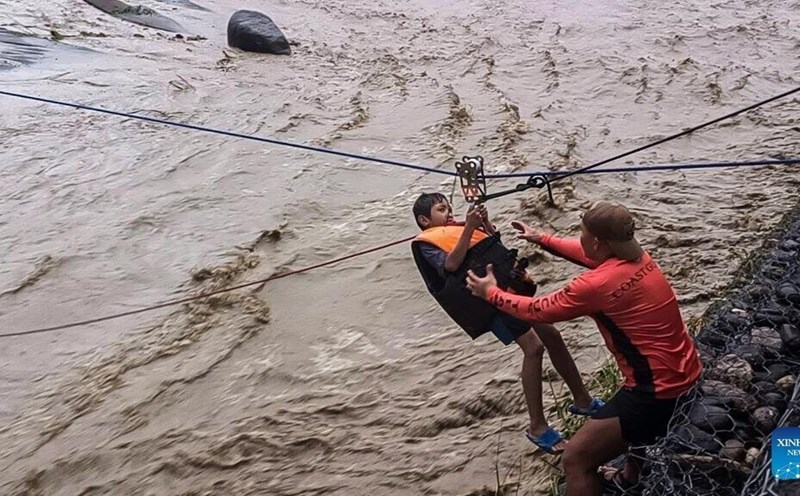The National Hurricane Center (NHC) forecast said that on September 22, Hurricane Gabrielle strengthened to Category 4 as it swept through the central Atlantic. With maximum sustained winds of about 220 km/h, Gabrielle is considered one of the strongest storms of the 2025 Atlantic hurricane season.
Currently, the storm is located about 322km southeast of Bermuda and is moving north-northeast. Although not forecast to make landfall directly, Gabrielle could still have a major impact on the US East Coast, from North Carolina to New England. Experts warn coastal residents to be cautious with high waves, strong currents and rough seas in the coming days.
The NHC said that in just a few days, Gabrielle had developed from a tropical storm to a Category 4 super typhoon. The reason is that the sea water temperature is warmer than average and the upper-level winds are stable, creating conditions for the storm to strengthen rapidly.

Not only Gabrielle, there are now two other low pressure areas in the Atlantic that are likely to develop into storms in the coming days. This raises concerns about increased storm activity in late September, which is considered the peak of the Atlantic hurricane season.
Local coastal authorities recommend that people limit sea activities, especially swimming and recreational yacht. Even if the storm does not make landfall, strong waves and water flow away from shore can cause a fatal danger.
The previous 2025 typhoon season was quite quiet, but Gabrielle's sudden explosion suggested the situation could change rapidly. Several coastal states have begun emergency response plans, including community warnings, evacuation preparations and increased 24/7 weather monitoring.
Climate change is believed to be a factor that increases the frequency and intensity of strong storms. Rising sea surface temperatures not only provide energy for storms but also make the phenomenon of "rapid intensification" of storms increasingly common, reducing the preparation time of coastal communities.
Although it is unclear how long Gabrielle will last, the NHC stressed that Americans should not be subjective, especially in coastal areas frequently affected by Atlantic storms. Just a small change in the path could have more serious impacts than expected, the agency warned.














